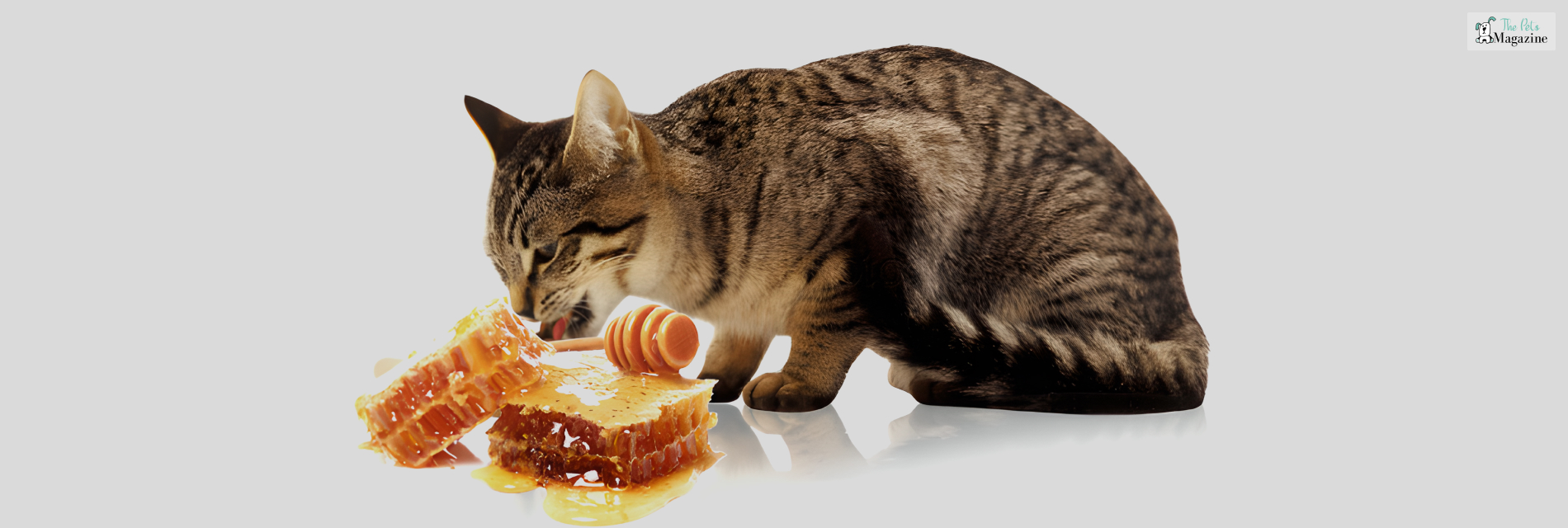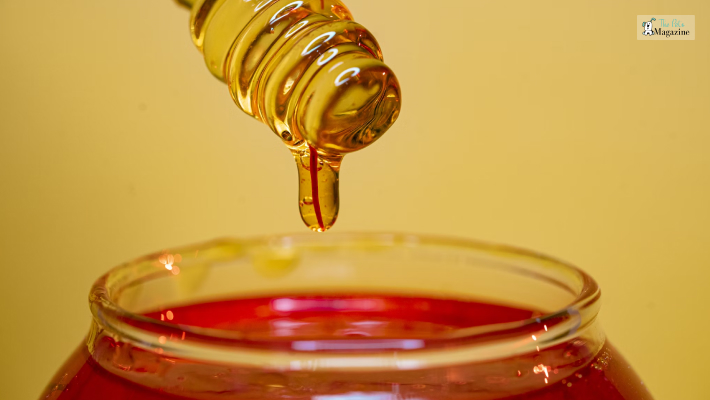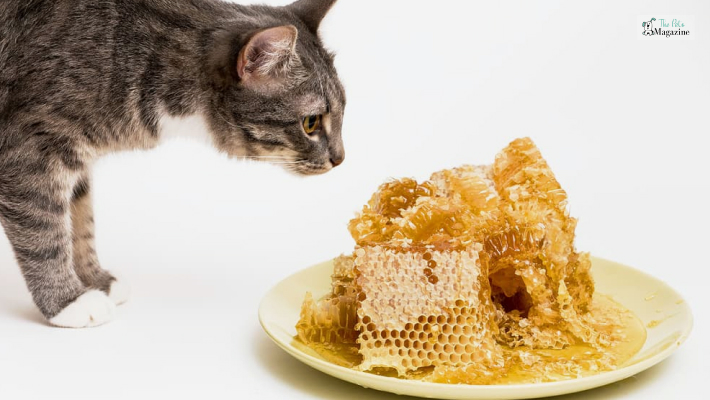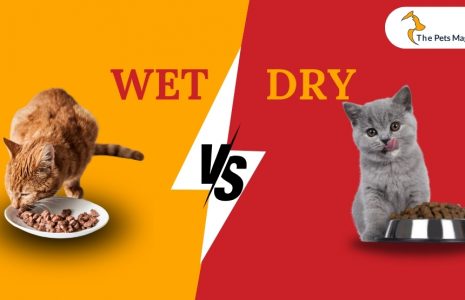Can Cats Eat Honey? Source Of Antioxidants Or Sweet Poison?


Honey is considered to be a superfood for humans because it is packed with antioxidants and has a variety of health benefits. For instance, honey helps boost the immune system, promotes digestion, reduces blood pressure, and soothes sore throats. But is honey equally beneficial for our feline friends? More importantly, can cats eat honey?
In this article, we will provide answers to all these questions such as – can cats eat honey and how much honey can be given to cats. Read on!
Can cats eat honey?
The short answer to this question is that yes, cats can eat honey but only in moderation. This is because cats are obligate carnivores and 70% of their diet should consist of meat. Their digestive system is also designed to break down and process only animal-based protein. In addition, their diet should only have a moderate amount of fat and a very low amount of carbohydrates.

There have also been a few studies that suggest that cats cannot even taste sweetness because they don’t have the taste buds that can detect the sweet taste. If that is the case, then that raises the question do cats even enjoy eating honey? It is difficult to know whether cats enjoy eating honey.
The bottom line is that we have very little evidence suggesting the benefits of honey for cats. So it is impossible to give a definite answer to the question – can cats eat honey?
Why Honey Isn’t Ideal for Cats?
Honey which is mainly made up of sugar is a carbohydrate. Hence when it comes to meeting our feline friend’s nutritional needs, honey is of no use at all. Moreover, cats may find it difficult to digest a lot of honey at once. If your cat consumes a lot of honey, it may cause digestive issues such as gagging, diarrhea, regurgitation, and vomiting.

Here are some more reasons why honey isn’t ideal for cats:
1. Too much sugar
Honey is high in sugar and calories, which can lead to obesity and other health issues in cats. Their digestive systems aren’t equipped to handle a lot of sugar.
2. Upset stomach
The excess sugar in honey may upset your cat’s stomach, causing diarrhea, vomiting or other gastrointestinal problems. Some cats may even experience life-threatening sugar toxicity.
3. Cavities and tooth decay.
The high sugar content of honey can lead to cavities, tooth decay and other dental issues in cats over time. Their teeth aren’t meant for a sugary diet.
4. Botulism risk.
Raw honey may contain spores of Clostridium botulinum, which can lead to botulism in cats. While rare, botulism is extremely dangerous and even life-threatening. It’s best to avoid giving honey to cats altogether.
In the end, honey really has no benefits for cats and poses some serious health risks. As tempting as it may be to share a taste of honey with your feline friend, for their safety and well-being, it’s best to keep this sugary treat to yourself. Your cat will be much happier and healthier enjoying their regular cat food and treats.
Are there any benefits of honey for cats? Busting the Myths

Now that you know can cats eat honey or not and that they can only have a small amount of honey if they like the taste of it, let us discuss if there are any health benefits of honey:
Will eating honey help skinny cats to gain weight?
Kittens or even adult cats who are excessively skinny can gain weight by eating honey. However, it will be a very unhealthy way of gaining weight. This is because excess carbohydrates like honey will get converted and stored as fat in the cat’s body. It will only aid in increasing your cat’s body fat but not their muscle mass.
Hence, you should avoid feeding honey to your cat to increase its weight. Instead consider feeding food that is rich in high-quality animal protein like fish, chicken, or beef which will help in increasing their muscle mass and bone density.
Can honey help relieve allergy symptoms in cats?
Honey has anti-inflammatory properties so theoretically eating honey can help soothe some allergy symptoms in cats such as red and inflamed skin, itchy throat, runny eyes, and sensitive paws. However, there are no studies or actual evidence that suggest honey helps in soothing allergy symptoms in cats.
The best way to help your cat to relieve allergy symptoms is to look for the source which can be anything from dust and houseplants to food. You should find the allergen causing the allergy reaction and remove it from your cat’s surroundings. In addition, you should also try washing your cat’s bedding and provide them with nutrient-rich food like chicken broth to improve immunity.
Can honey help promote wound healing in cats?
Honey has anti-oxidants like flavonoids, Carotenoid derivatives, Amino acids, and the like which can help in repairing cell damage and accelerate wound healing in humans.
Wrapping Up
So can cats eat honey? The short answer is yes, in moderation. Honey can be part of a balanced diet for cats as an occasional treat. Just be sure to only give a small amount, around 1/2 teaspoon for a typical-sized cat, and watch them to make sure they don’t have a bad reaction. Honey does have nutritional benefits for cats like antioxidants, but too much can lead to obesity or an upset stomach. As with any treat, moderation is key. If your cat begs for a taste of honey every time you have some, just remember their pleading eyes are not a good reason to overindulge them!
A tiny bit of honey now and then is fine, but for the bulk of their diet, stick to a high-quality cat food formulated for your cat’s age and size. And if you do give them some honey, be sure to brush their teeth regularly to prevent tooth decay. So go ahead and give your furry friend a small taste of this natural sweetener. Just do it responsibly and your cat can enjoy honey from time to time.
Have you read these?








Leave A Comment